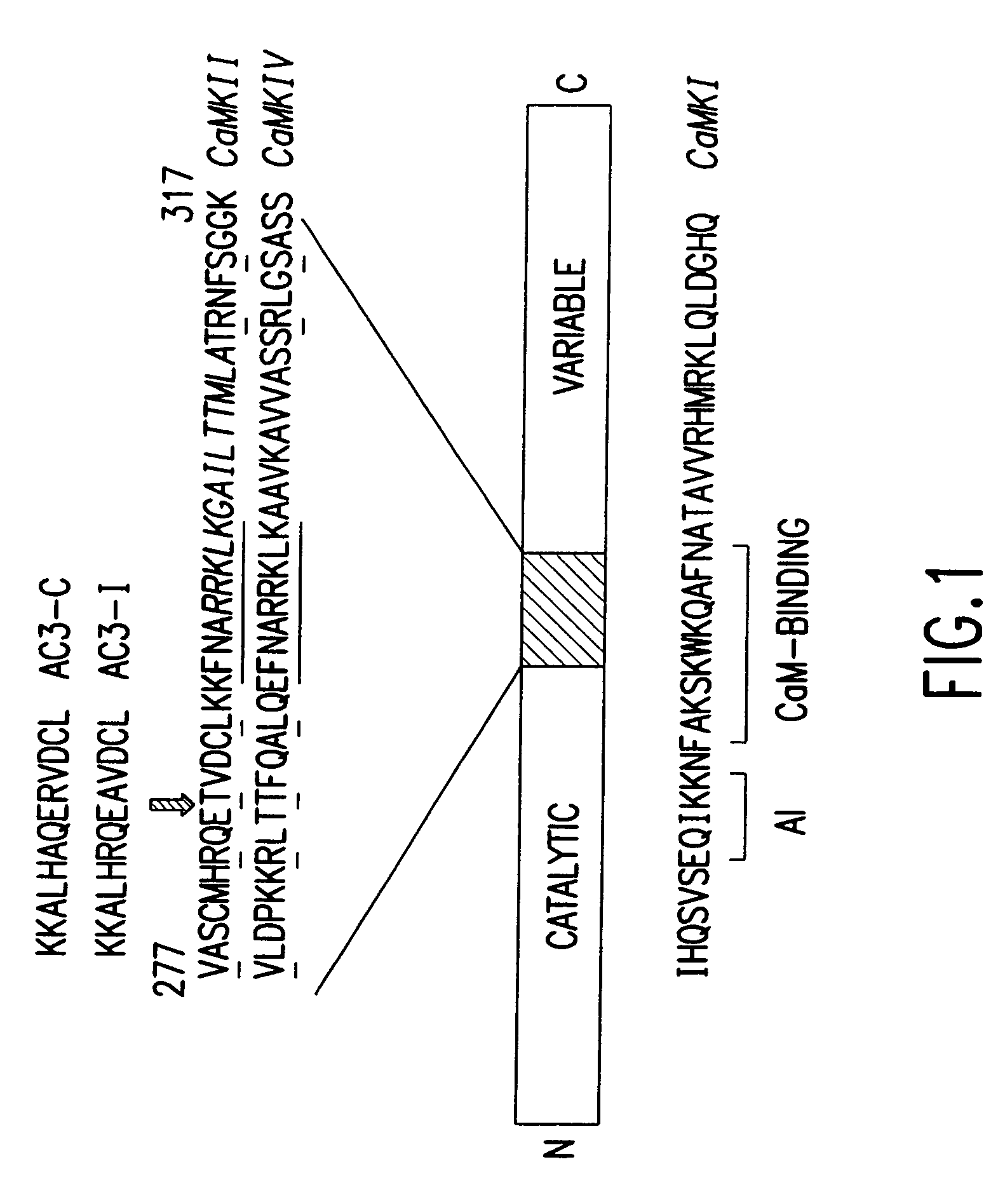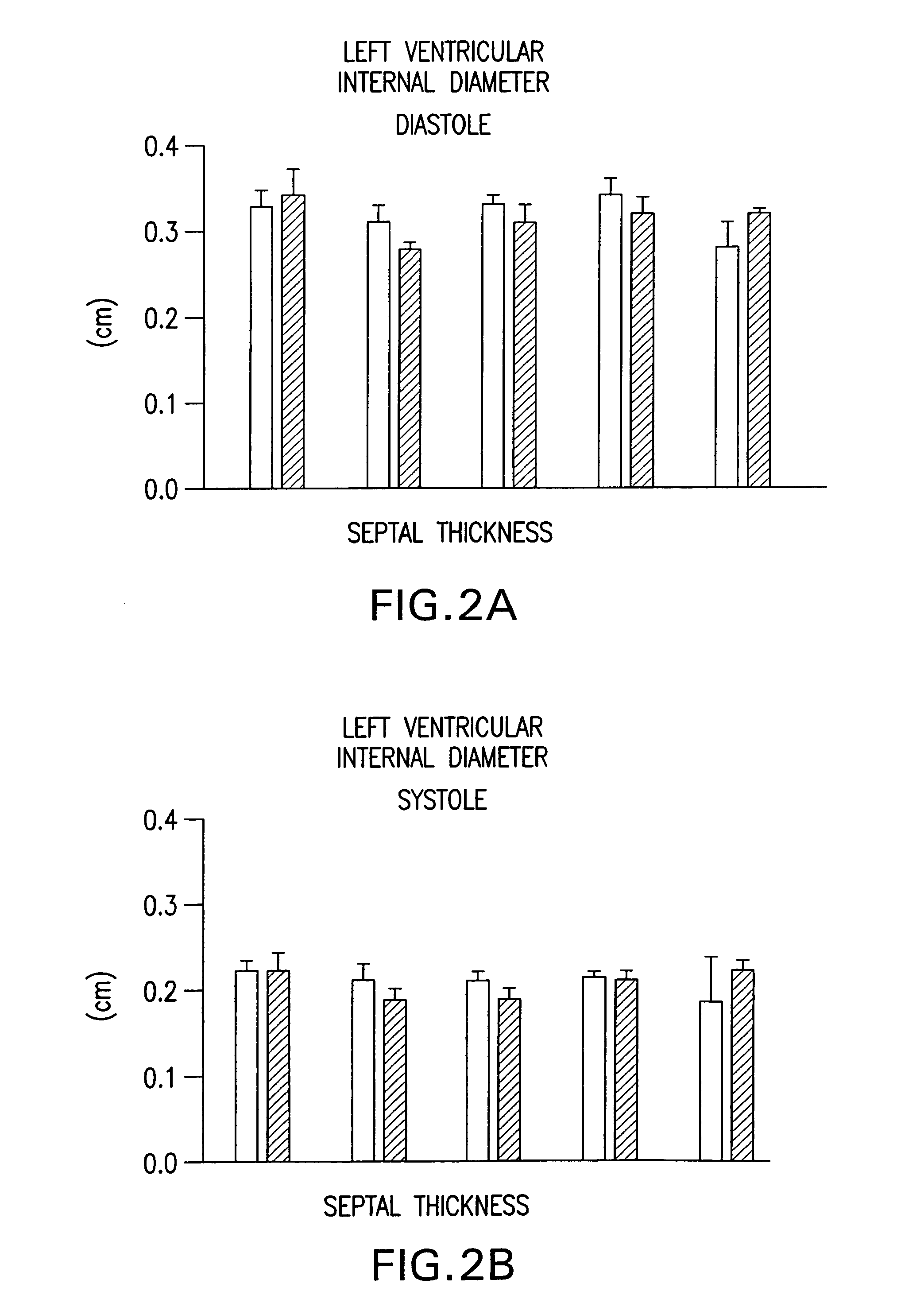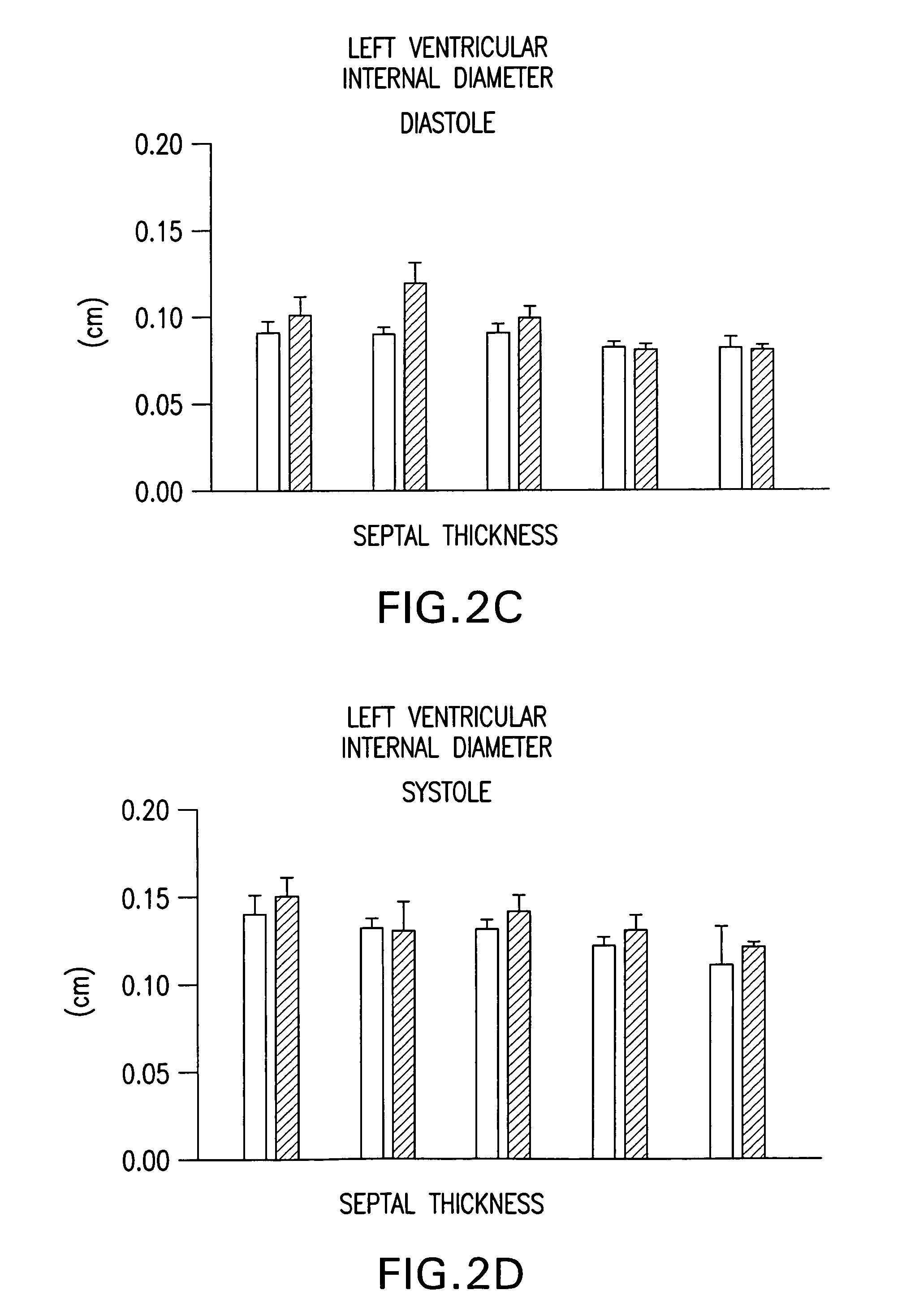Use of calmodulin kinase II inhibitors to treat myocardial dysfunction in structural heart disease
a technology of calmodulin kinase and inhibitor, which is applied in the field of inhibition of calmodulin kinase ii, can solve the problems of significant unsolved public health problems, insufficient therapies for heart failure, and inability to treat heart failure and death, so as to improve myocardial contraction and treat or prevent myocardial dysfunction
- Summary
- Abstract
- Description
- Claims
- Application Information
AI Technical Summary
Benefits of technology
Problems solved by technology
Method used
Image
Examples
examples
[0072]AC3-I transgenic mice: The AC3-I mice were generated by synthesis of a minigene based on the peptide sequence for AC3-I (FIG. 1). A ‘minigene’ encoding AC3-I (KKALHRQEAVDCL),2 a CaMKII inhibitory peptide was constructed with these complementary oligonucleotides:
[0073]
(SEQ ID NO:1)GATCAAAAAAGCCCTTCACCGCCAGGAGGCAGTTGACTGCCTTGCTTTTTTCGGGAAGTGGCGGTCCTCCGTCAACTGACGGAACGCTAG,anda minigene was similarly constructed for arelated, inactive control peptide, AC3-C(KLKALHAQERVDCL) using the following complementaryoligonucleotides:(SEQ ID NO:7)GATCAAAAAAGCCCTTCACGCACAGGAGCGCGTTGACTGCCTTGCTTTTTTCGGGAAGTGCGTGTCCTCGCGCAACTGACGGAACGCTAG
[0074]The minigene was inserted in frame with the EGFP into the BspEI site of pEGFP-Cl (Clontech), which places the EGFP at the N-terminus of the peptide. The AC3-I minigene includes a Kozak consensus translational start site. It was then sequenced and expressed in HEK293 cells to show green fluorescence. Previous studies indicated that an AC3-I-GST-MTS fusion p...
PUM
 Login to View More
Login to View More Abstract
Description
Claims
Application Information
 Login to View More
Login to View More - R&D
- Intellectual Property
- Life Sciences
- Materials
- Tech Scout
- Unparalleled Data Quality
- Higher Quality Content
- 60% Fewer Hallucinations
Browse by: Latest US Patents, China's latest patents, Technical Efficacy Thesaurus, Application Domain, Technology Topic, Popular Technical Reports.
© 2025 PatSnap. All rights reserved.Legal|Privacy policy|Modern Slavery Act Transparency Statement|Sitemap|About US| Contact US: help@patsnap.com



